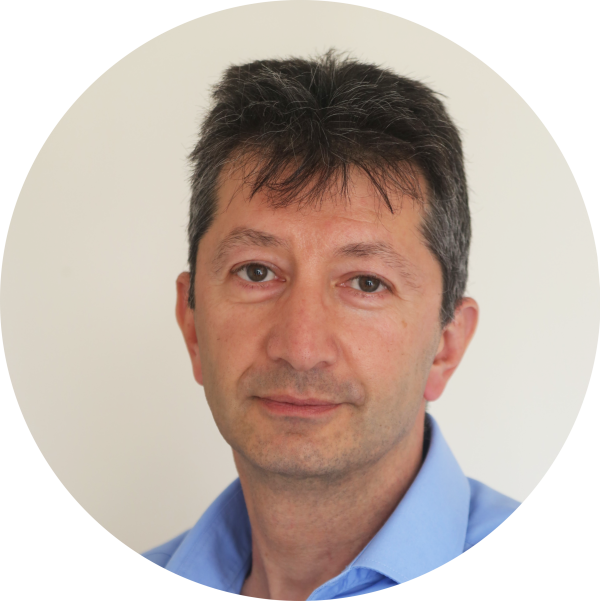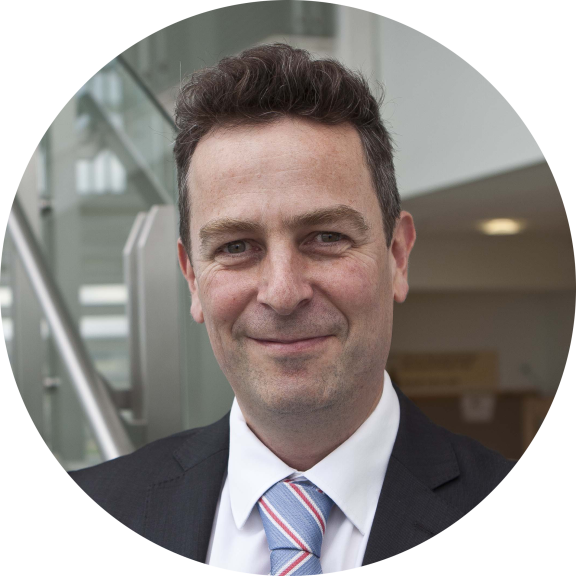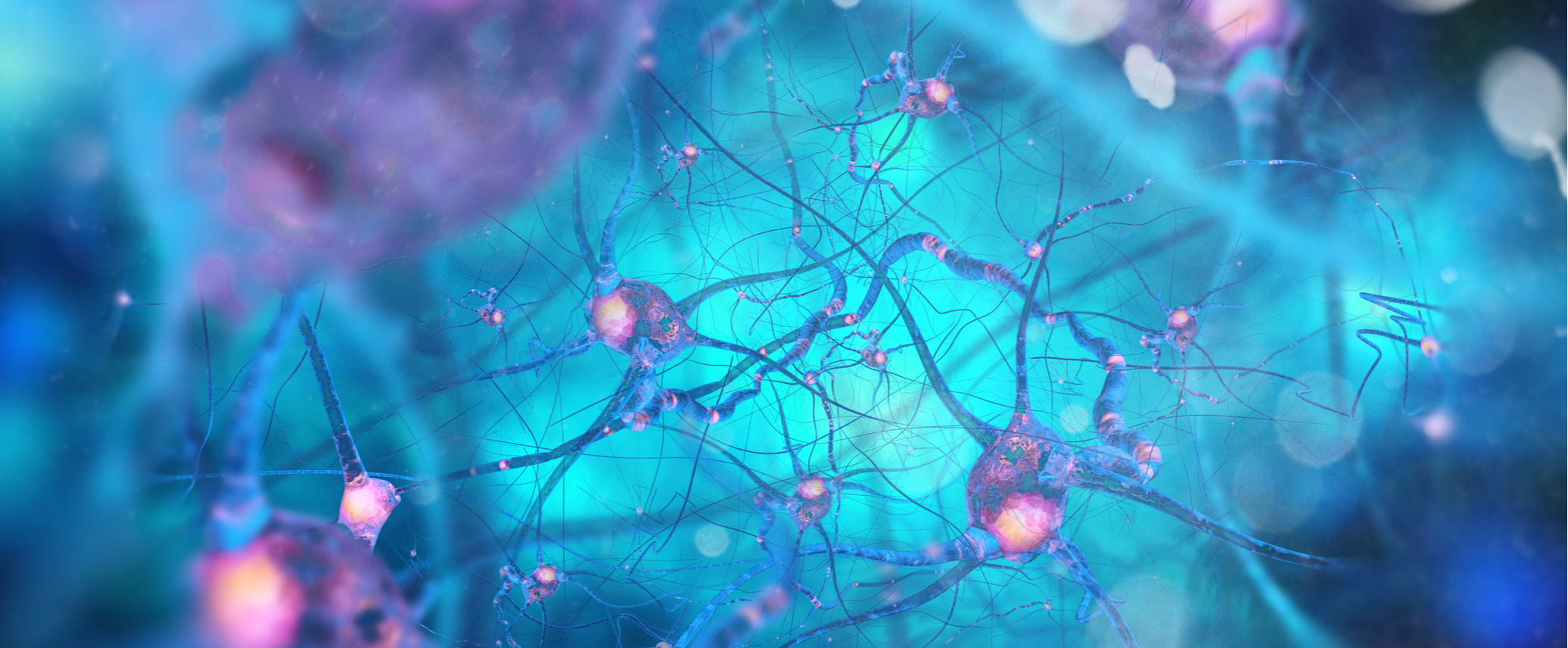They applied for a grant in the 2019B grant round from the Foundation and were awarded a conference and training course grant to fly two world-class MND researchers to New Zealand to present their research at the conference. This conference created a forum for knowledge exchange and the opportunity to build international alliances to connect New Zealanders to global research initiatives.
Professor Ammar Al-Chalabi of King’s College in London and Professor Martin Turner of Oxford University are both MND researchers and are collaborating on a research project together. They both presented in December at the MND New Zealand conference and were interviewed on their joint projects.

Professor Ammar Al-Chalabi
King’s College, London
Ammar Al-Chalabi is Head of the Department of Basic and Clinical Neuroscience at The Maurice Wohl Clinical Neuroscience Institute at King’s College London. He has numerous other roles too, including leading the multinational BRAIN-MEND consortium, which looks for overlaps and differences in neurodegenerative diseases. His research looks at genetic and environmental causes of MND, including the six steps that lead to the onset of MND.
Q: What’s your focus for 2020?
One of the new areas we're looking at is non-motor symptoms. These are symptoms that people don’t reveal to their doctor because consultations are always focussed on weakness. For example, you might have a frozen shoulder because you can't move your arm, or backache because your posture is awkward. Itching, swollen legs, cold limbs and urinary disturbances are other symptoms people don't tell us about. Fatigue is another big symptom. Tackling these symptoms can improve quality of life for people with MND. It’s a big opportunity.
Q: What’s the value of international collaboration for MND research?
Many things related to the brain can only be studied if you have large numbers. While MND has a lifetime risk of one in 300, i.e. it’s relatively common, it shortens life dramatically so finding people for studies is a challenge. By working with teams in other countries, we have access to thousands of people with MND. Part of international collaboration is attending conferences and explaining what you’re doing, so that others can see how their research could assist yours.
Q: What’s the most exciting thing you’re working on at the moment?
I’ve been working with Professor Martin Turner, because we are both interested in the different subtypes of MND. He does it from an imaging and biomarkers point of view, I do it from the genetics point of view. We’ve just written a paper about a very interesting idea. It’s to do with how all the nerve groups that are affected in MND are the same nerve groups that are paralysed during REM sleep. Likewise, all the nerve groups that are protected are the ones that aren’t paralysed. For example, in REM sleep your eyes move, and your eyes aren’t usually affected in MND until the very last stages. You’re obviously breathing during REM sleep, and that’s the last thing to be affected by MND. You don’t become incontinent in REM sleep, which also applies with MND. We even looked at hearing. Little muscles that are active in your ear during REM sleep are also resistant to MND. It all means that sleep research might feed into MND research.

Professor Martin Turner
Oxford University
Martin Turner is a Professor of Clinical Neurology & Neuroscience at the Nuffield Department of Clinical Neurosciences at Oxford University. He is also a consultant neurologist at John Radcliffe Hospital, which is associated with the university. The focus of his research is biomarkers of disease activity in MND. Biomarkers are vital, because they allow researchers to tell whether a therapy trial is slowing disease progress.
Q: Why are biomarkers so vital for MND research?
At present we can only use very blunt biomarkers, like survival, to see if a drug’s working. We urgently need things we can measure, in blood or with some sort of scan, that shows how active the disease is. It means people with MND can take part in trials and find out relatively quickly whether the therapy is having any effect. It’s devastating to be involved in a 12 to 18-month trial, only to discover, at the end, that there’s been no benefit. Time is not on their side; while they’re tied up with a therapy, they’re not sure is working, they may miss an opportunity to join another trial.
Q: What’s your focus for 2020?
We want to make biomarker development part of the routine clinical environment. The first step is to roll out a three-monthly blood test for a marker called neurofilament, the levels of which reflect how active the process of neuronal loss is. Rolling that sort of test routinely into the clinic isn’t easy, however we have a roadmap of how to do it. It starts with getting the hospital laboratory on board, so that we can get samples into the freezer as soon as they’ve been taken. Then we set up a pipeline for testing the samples, followed by a way to feed those results back to patients when we see them every three months.
Q: Why is international collaboration important for neurological research?
International conferences are a way to meet colleagues and learn from them. In neuroscience, we’ve always had a tradition of collaboration. Being able to share ideas, divide the workload and avoid duplication means more work gets done. It's very stimulating intellectually, and it spurs you on. There’s a touch of competition in the air too, which is no bad thing.
Q: If you could see into the future five years, what would you hope to find?
I hope we’ll be able to give a diagnosis of MND followed by an offer of a drug trial to every patient, like we do now for cancer. I also hope that we’ll have one or two more licensed drug treatments, on top of riluzole. At the moment, there is no specific test and MND can be difficult to diagnose in the early stages. Practical care is still hugely important - it can add at least a year’s survival to patients on average, but I’d definitely like to be doing more in terms of drug therapy. Also, I think we will be routinely giving effective gene-based therapy for the 15% of MND patients with a genetic cause.






